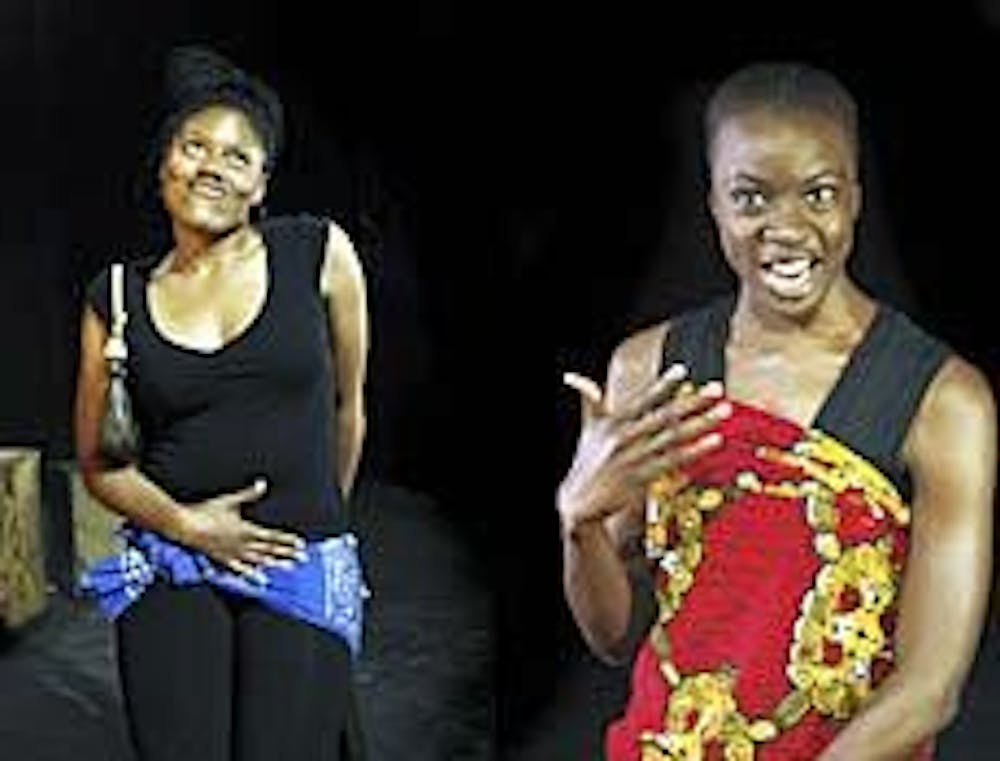While watching a play about AIDS, one expects to be either depressed or bored. Everyone has seen something in high school, be it at a health conference or on a public service announcement, full of statistics and dire warnings about how to avoid contracting HIV.
Instead, "In the Continuum" is an entirely human story about two strong but imperfect women who happen to have HIV and their friends, relatives, social workers and medical consultants.
Even better, it is so funny that no matter how much one goes in thinking, "I cannot laugh, I shouldn't, because this is a serious subject," that determination will soon melt away. The first Jungle Fever reference made the entire audience smile, and by the "pimp daddy" jokes, old women were crying with laughter. One of the most remarkable things is that all this is played out by just two actresses.
For Nikkole Salter, "In the Continuum" co-author, actor and producer, the first idea for the play came when she learned that the leading cause of death for black women ages 24 to 35 is AIDS. Co-author/actor/producer Danai Gurira, a native of Zimbabwe, grew up in a culture where AIDS is epidemic and often blamed on women by men.
These two women combined their separate thoughts into a great one - a series of monologues revolving around two very different women: Abigail (Gurira) and Nia (Salter).
Abigail is a Zimbabwean professional, mother and wife; Nia is a teenage poet from crime-riddled Los Angeles. The women are very different, but they are both impoverished, pregnant and HIV positive. Their thoughts dominate the play as they deal with the shock, rage, pain and eventual acceptance of their disease and, in turn, force the audience to think about the topic in a new light.
The play begins on a happy note and goes on to satirically critique everything from social workers and rolling power outages to third world sweatshop labor (an inequality Nia compensates for by stealing a designer purse).
The witty vignettes continue with the traditional witch doctor, or "nganga" (played by Gurira), who enters dancing, shaking and shouting with hair like an electrocuted Barbie doll. After noting that his ridiculous outfit is "for the tourists," he gives Abigail a selection of traditional medicines and warns her to not mix them up or her "husband's penis is going to look like a piece of tree bark."
This play is not for the sexually modest; it leaves the audience laughing, gasping and occasionally blushing. Back in the States, Nia's cousin, Keysha, advises her to keep her baby because "it's not like you got pregnant by some ole, dirty, jerry curl juicy, gold-tooth pimp." She later reminds Nia just "how many girls pokin' needles in condoms tryin'ta have [boyfriend Darnell Smith's] baby?"
But between the smiles, the play seriously and heartbreakingly considers what it personally means to contract AIDS: the social stigma, the stereotypes, the uncertainty and self-doubt and the universality of these thoughts and feelings. In the end, the key point of the play is that although they live over 10,000 miles apart, the two women share strikingly similar experiences.
So, yes, it's about AIDS, life and death and tragedy, and perhaps it shouldn't be funny, sexy or scandalous. But it is, and that's what makes "In the Continuum" so enjoyable.
$10 student tickets for "In the Continuum" are available the night of the show, two hours before curtain, on a first-come, first-served basis. For more information, visit www.woolymammoth.net.





